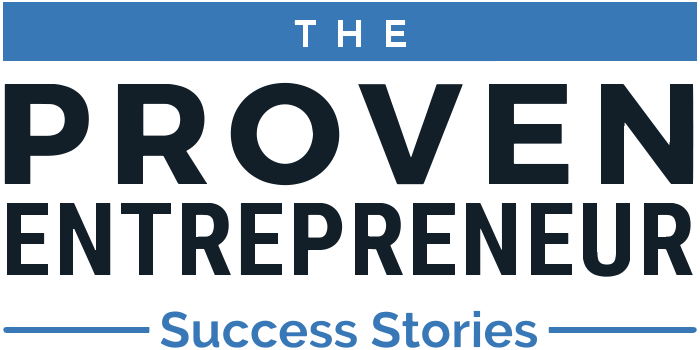Presenting your business to the public correctly and well can go a long way. That is why public relations is important. In this episode, we have Evan Nierman, the founder and CEO of Red Banyan with 20 years of high-level experience in public relations, marketing, crisis management, online media, international relations, and public affairs. He talks to Don Williams about his secrets to growth and success, emphasizing that the key in this industry is communication. He helps his clients solve their problems and educates them on promoting the value of their products and services. Evan has already provided strategic communications counsel to top business leaders, different government officials and candidates, and private individuals. Listen and find out how Evan got to where he is today!
For information on how to work with Don visit Work With Don Williams
You can also reach out to Don Williams at https://donwilliamsglobal.com
Please join Don and his businesses in support of St. Jude’s Children Research Hospital in its Mission to cure Childhood Cancers. You can donate to St. Jude at stjude.org/donate
EVAN NIERMAN – PROBLEM SOLVER PROVEN ENTREPRENEUR
I have my good friend from South Florida, Evan Nierman, who is CEO of Red Banyan and a fellow Entrepreneurs’ Organization member like myself. Evan specializes in crisis management and strategic communication. We all probably can use strategic communication, whether we’re in crisis or not. All relationships have two pillars, which are communication and expectation. Evan, welcome to the show.
Thank you for having me. I’m super excited to be here.
I’m thrilled for you to be here. Thank you for joining. Let’s hop right in. What is Red Banyan? What do you do? Who do you do it for, with or to? Tell us about your business.
As you pointed out, communication is at the root of everything. From our perspective, there’s never been a more important time to get your story and message out and make sure that you’re the one who’s defining, whether it’s your personal brand, organization’s brand or your story. If you’re not willing to tell it, someone else is going to tell it. The way they tell it is probably not the way that you want it to be told.
It’s incumbent upon all of us to make sure that we’re advocates for ourselves and that we communicate effectively. Our job as communications consultants is to empower our clients, help them speak the truth and deliver their stories. Some people say that everyone always wants to talk about the crisis PR part of the work that we do. Keep in mind. We’ve got two main types of clients, those who want to get in the press and those who need to get out.
My main business where I spend most of my time is sales consulting. It’s easy to help people bring in more revenue. When you do it right, it’s easy. When you don’t, it’s hard and you’re probably not doing it right. One of the big conflicts is always, “I don’t want to do that because I might be too salesy.” My answer is always, “If you’re not going to promote yourself, who is? If you’re not going to try and control the narrative around your business and brand, you’re letting someone else do it for you.”
First of all, everyone says, “Any entrepreneur or business person, you’re always selling.” In a sense, that’s true but the complete opposite is also true. If you approach selling from the perspective of, “I’m not there to sell anybody or force them to buy what I’m offering. I’m here as a problem solver. Tell me your problems and I’ll help you solve them.”
In my experience, if you approach business and life that way, asking intelligent questions, understanding what’s someone working towards if they’re having trouble getting to and how can you help that person accomplish what they want, if you’re doing that, you’re not selling to them. You’re presenting a solution. If they want to work with you, that’s great. You can help them. If they don’t, that’s okay too. You’ve done your best to try to address where you might be helpful to that individual. You’ve paid it forward. That’s how I think of it.
Communication is at the root of everything.CLICK TO TWEET
In my course Romancing Your Customer, because I see the entire customer journey as parallel to the romantic journey, selling is spelled HELPING. The quicker you ignore and forget anything you learned about traditional selling, the better you do. It is just all about helping. If the product or service you represent doesn’t help people, find something that will and you can be passionate about doing that.
The part about always selling is conducting yourself in a manner in which people might want to do business with you. You then get those calls out of the blue, “We talked years ago. Could we talk about this? I have a need.” Those are the very best. Let’s dial the clock back. We’re going to go back to young Evan, say 5 to 18. Tell me about your childhood. Were your parents entrepreneurial? Is that where you caught the bug?
Not at all. It’s funny. I came to entrepreneurship later in life. I never understood or envisioned the idea that you can start your business and chart your course. I had been brought up in a very traditional house where it’s very hardworking people. I grew up in Shreveport, Louisiana, in Northwest Louisiana, about 15 miles from the border with Texas, not too far from Arkansas.
My grandfather is a very hardworking individual. What I learned from my grandfather was he was so passionate about his work. He was a stockbroker. He was in the market for over 60 years. He showed me that if you enjoy what you do, it’s fun. You’re not necessarily working. It’s not drudgery. You can enjoy your job. My father worked in the family business. Going back to my great grandfather, he was an entrepreneur but I didn’t have the opportunity to meet him. He’d already passed away by the time I was born.
The way that I had grown up was very much through the lens of you study hard, make good grades, get into a good college, make good grades in college, get a job and then work your way up, which is what I was doing for the first eight years of my career. It was a wonderful experience because I happen to work at a great organization with strong leadership. I modeled the behavior of the people who were leading the organization to who I looked up to. I ultimately decided I needed to leave because I was going to blink and be there for ten years. I wasn’t ready to commit at that young age.
It was only through a series of experiences that I realized, “I want to take more control over my destiny. I want to decide who were the clients we work with, the ones that we declined to work with, who did we say no to and who are the people that I want to work with.” I came to the conclusion that if I start my organization, build my culture, recruit the people who I want to work with and work with the clients that we want to work with, I’m going to have a much better experience than leaving that up to chance or putting that in the hands of someone else.
That was the leap that I made into entrepreneurship. I didn’t even realize until I was about 32 or 33 that I could start my thing. I’m okay with coming to it a little bit later because the skills that I developed working within bigger organizations, larger institutions and all of the experiences I had gave me the confidence and the competence to when the time was right to go out on my own, I had the necessary skills and mentality to go out and win.

Problem Solver: It’s really incumbent upon all of us in this day and age to make sure that we’re advocates for ourselves and that we communicate effectively.
Your grandfather was a very wise man. Find something you love and never work a day in your life. He instilled that thought and planted that seed into a fertile mind. It grew there. As far as age, I know many successful entrepreneurs who began their entrepreneurial career after a 20 or 30-year corporate career. Most of them regret that they didn’t start earlier. Where an entrepreneur is concerned is age is just a number. Some 13-year-olds out there have multimillion-dollar companies and there are 65-year-old brand-new day one entrepreneurs.
From my standpoint, it does not matter. Just get started. I’m going to take you back to little Evan again. Tell us all your deepest, darkest secrets. Mom and dad weren’t entrepreneurial but great-grandfather was. Your grandfather was a stockbroker. There’s a little entrepreneurial in that. He lived and died based on his efforts. There was nobody to blame but himself.
At my first job, I mowed the yard. I didn’t mow the yard because I got paid. I mowed the yard because there were consequences if I didn’t mow the yard. I’m sure now it would be child labor. I was 8 or 9, pushing a power mower, which OSHA and everybody would freak out about. Take me back to your first job where you got a check and got paid. What did you do?
I was a soccer referee at my first job, which taught me a lot about people skills. I was obsessed with soccer from the age of 5 or 6 onward. I played my whole childhood. I ended up playing for four years in college at a Division 1 school. When I tell people I played on the football team, they take one look at me. I’m 5’8. They’re like, “How’s that work?” I said, “It was the other football.”
The first job where I got a paycheck was as a soccer referee as a kid. I liked getting paid to be outside on the soccer field. I was passionate about soccer. I saw some crazy stuff. I’ve never thought about it until this moment but that was my first experience dealing with high-stakes pressure crises. I have never been back in action before.
Both of my sons were big baseball players. In the two truths and a lie, I always win because one of my savings is for 50 years. I coached and/or played baseball and/or softball. Everybody always thinks that’s a lie. It is the truth. Coaching little league or refereeing children younger than yourself at the time will certainly teach you some dynamics about irritated and enthusiastic players, parents and people who would normally have exceptional behavior who somehow lose the ability to do that once they’re at a junior soccer game.
It is amazing. It’s as if the World Cup were being played every Saturday.
If you enjoy what you do, it’s fun. You’re not really necessarily working. You can enjoy your job.CLICK TO TWEET
Let’s go forward a little bit. You followed your parents’ advice and went to college, joined the Merchant Marine or backpacked across South America for a couple of years. What was next?
There’s nothing so adventuresome. I went to school and made good grades. I was a good boy. I didn’t cause a lot of trouble for my parents. That came later with my youngest brother. I went off to school in Washington, DC because I wanted it to be where the action was. I’d fallen in love with Washington at a young age. What I loved about DC was you can find your passion there.
If there’s a cause you care about, there’s an advocacy organization in Washington that’s working on that issue. All roads, politically and whatnot lead to Washington. In a way, New York is the center of the financial universe but politically and in terms of current events, there was no other place I wanted it to be more than Washington DC.
One of the things I loved about going to school at George Washington was they didn’t have school on Fridays. They only had classes Monday to Thursday because they wanted you to take advantage of the fact that we were in Downtown DC and get internships. What that gave me was the opportunity. Even while I was a college student, I had 4 or 5 different jobs. I got to try different industries and different types and sizes of organizations. I learned a little bit about what I wanted to do but mostly I learned what I did not want to do.
That’s equally valuable. Learn what I want to do and what I want to avoid. It’s all learning. I love Washington DC. I did not go to Washington DC until I was 35 years old. I immediately fell in love. I was born and raised in Kansas. At that time, I was involved in the political scene. I didn’t particularly like that part but the history is I could tour every day. You probably could tour every day for a long time before you’d see everything. What’s your first job out of GW?
My first job out of GW was one of my internships. I was interning at an organization called AIPAC, the American Israel Public Affairs Committee. I interned my senior year there in the second semester. Graduation was coming up and I remember distinctly I was at my internship. My boss said to me, “What are your plans after you graduate?” I said, “It’s a couple of months away. I haven’t thought about it.” She said, “Here’s what I’m offering. You’ll come here and continue. You’ll start on this date and be in my department. What do you think?” I said, “I’m in. That sounds wonderful. Thank you.”
About ten days later, I came back to her and said, “I’m wondering. We didn’t talk about the details. I’m taking the job but do I get paid? Are there benefits? How does it work?” She said, “This is your starting salary. You’re going to make $26,000. We have the vision, dental, great health care and a retirement plan. Anything else you need to know?” I said, “That’s perfect. Thank you.”

Problem Solver: You can start your own business and chart your own course.
How long were you there?
Seven and a half years.
When you left there, was that when you started your business?
No. I had to help someone else build their business and make a lot of money. I went to a small boutique crisis PR firm and worked on a lot of the real high-profile clients. I didn’t own the business. I learned a lot from that business and I liked the variety. I like being able to help people in a time of need. I love the work. I found it intellectually stimulating and fascinating but I hated the culture of the organization. I said, “One day, we’re going to have different types of clients and do business differently. I could do it better myself. I don’t know when but I’d like to have my firm.”
When I left that firm, I still didn’t start my own business. I went in-house at a startup that had gotten funded. That’s what moved me to Florida. I went in-house for a year and a half at a startup company. I saw the company grow fast and I also saw it disintegrate. At that time, it was a horrible time to start a business. I had a two-year-old and an infant. We had just uprooted our lives to move to Florida.
I went to have this conversation with my wife. I said, “I’m going to quit my job. I want to start my own thing. I need you to give me one year. At the end of the year, if it works, we can stay right where we are. We like it here. We’re good. If not, we’ll pack things up and go back to Washington. I’ll get a good job working either at AIPAC again or at another organization. We’ll get a great job but we’ll go back.” 0 clients turned into 1 client, turned into 2 and went back to 1. Eventually, bit by bit, I started building. Here I am years later, doing exactly what I’m supposed to be doing.
It’s so common for an entrepreneur to work somewhere, loved what they did and the business they were in but said, “I can do better.” Maybe they would have even stayed if the leadership in that company would have let them do better but for whatever reason, they won’t so you start your own thing.
Even when you have those really rough experiences, you learn a lot from them.CLICK TO TWEET
In my entrepreneurial journey, I had worked my way into a partnership with the owner, taking him from 3 locations to 11. My reward was to go into partnerships on the twelfth location. He did not pay me as agreed. I then became his number one competitor. We reconciled many years later. I have no hard feelings. At the time, part of my motivation was to be successful, be a direct competitor and hurt that business. I’m not proud of that but that’s the way it was.
It takes some self-awareness to recognize where you are mentally. It sounds to me that that’s not the kindest, nicest reason but it’s a motivator.
Let’s talk about a warp speed moment. Things are going pretty well in your business. No complaints. Life is good. Sun is shining. The birds are singing but a couple of things fall into place where you get a period of hockey stick growth or hockey stick sales. Do you have a moment like that you can share with us?
That first part where things are coasting and good, I don’t remember that. What I remember was grinding it out every day for the first five years thinking, “Is this thing going to fall apart tomorrow?” I’m living on that razor’s edge. That was the reality for at least the first five years. I’m trying to recruit people to a vision of where I thought we were going, even though we were miles away from it.
I tell someone, “We’re a great firm that’s on the swing. We’re going to be one of the top crisis PR firms in the country.” They’re going into our office, which doesn’t have any windows and the wall at the back of my desk backs up to the men’s room. You can hear every time somebody goes in there what they’re doing. It’s a shady neighborhood.
The vision of what I was selling versus our reality seemed to be a jarring disconnect. Sticking through in some of the harder times and the tougher lessons, losing a big account, losing a key employee and holding onto someone longer than I should have are all moments that caused a lot of pain at the time. It sounds cliché but they say, “What doesn’t kill you makes you stronger.” Even when you have those rough experiences, you learn a lot from them.
More importantly, you build almost a callous. The next time something happens, your skin is that much thicker. You’re that much more prepared. If you’ve survived it, lived tough times and made it through to the other side, it imbues you with a certain sense of confidence that is key. I believe that the number one element of entrepreneurship, more than anything else, is the mentality and a commitment to winning. If you believe in yourself and decide, “I’m going to make this company work and this organization grows,” if you will it, it is not a dream.

Problem Solver: Take more control over your own destiny.
I’m a big believer in this concept that you either win or learn. Learning is just slower winning. We don’t like it at the time. Sometimes it’s painful. We scuff our knees, get a black eye and maybe a bloody nose, figuratively but we learn and that prepares us as we go forward. The title of the show is The Proven Entrepreneur Success Stories. One thing we know is that every success story includes some failings. It’s not that straight line like the heavenly business ownership. That’s not how it works.
The other interesting thing is this. Sometimes the height of the summit is equal to the depth of the valley. One of my good friends was an attorney and a CPA. He had an issue where he lost his licenses, liberty, all his money, marriage and everything. His rise past that has been stratospheric. Would he have climbed so high without falling so low? Nobody knows but maybe not. What about a golden nugget, something you know that we don’t know that we want to know because it’s the real good stuff? Don’t hold back. We’ll never let you go until you answer.
We’re being conditioned by the world we live in to celebrate multitasking, do lots of things all at once and be frenetic. You got to be busy and check this thing all the time like, “Who’s texting me? I got to see who’s commenting on my social media posts. I need followers.” We’re programmed to be hyper-aware of all that’s going on and overstimulate it. Overall, that’s a bad way to live. The biggest breakthroughs I’ve made in the business have come because I’ve been willing to turn off the notifications, the phone and focus.
I believe that if you stop wearing the Apple Watch or turn the notifications off on the watch and spend a critical amount of each day in focused concentration, that is where the magic happens. It’s such a rarity and very hard to find but it’s so important. It’s in those quiet moments that you let your mind go. You’re sitting at a restaurant, waiting for the guy to get there and you immediately pick up your phone, start reading and death scrolling through this. Instead, what if you sit there, take a drink of water, look around and let your mind go? Some of the most innovative thoughts that I’ve had in making decisions and seeing with clarity have come from finding moments of quiet.
As entrepreneurs, many times, we get caught up in the hustle and try to outwork everybody. I’m not sure that’s possible because I’m already trying to outwork us. Something I learned some years back is that I only want to put time into my highest leverage activities and everything else somebody else should be doing anyway. That’s good counsel.
I have a good friend. He’s the top Facebook Ad guru in the world. He shared with me one time that at about 30, he went on information fast. No new books, conferences or new input, just solidifying his thoughts. As leaders, we know that feedback is important. Sometimes, you have to make the decision, regardless of the feedback that you got. Sometimes you have to lead. It’s inevitable.
If I can shamelessly use this as a moment to tell you that there’s something that I accomplished that without dedicated quiet time, it never would have happened. I’m reminded of it because I’m seeing all these books on the shelf behind you. I have this book sitting here on my desk which was I always told myself that one of my goals in life was to write a book. In 2021, I had made that quiet time, walked the talk, did what I said and locked myself away. I would do it for an hour here and there but focused. The result is I got my book written that I won’t have otherwise.
Every day, spend your time and energy finding the right people. Surround yourself with winners.CLICK TO TWEET
It takes a bunch of effort and persistence to finish. A lot of people start a book but few finishes. Congratulations. That’s amazing. Would we find the book on Amazon?
You can find it on Amazon.com. It’s called Crisis Averted: PR Strategies to Protect your Reputation and the Bottom Line. This hearkens back to what we were talking about. I wrote this book because I’ve had the opportunity to work with a lot of fascinating entrepreneurs and businesses. We’re in a tough time. You have to be able to tell your story and be prepared to come under fire.
I wrote this book because there are a lot of great entrepreneurs and business people out there who find themselves in tough situations and they don’t know what to do. I mentioned in the book right in the prologue, “If I help one business owner avoid catastrophe, if I keep them from making a misstep that costs them a lot of money or more importantly, their reputation, it was worth the effort in the end.”
It sounds to me that it’s better to prevent catastrophic stories about you and your brand than try and fix them. During those 10 or 15 years where I was working in DC, I would share that with people and they’re like, “I don’t want to get involved in that.” My reply was always this, “If you’re not trying to change the process, the process is trying to change you.” There is no surf along and everything will stay the same. That’s not happening. You’re working it or it’s working you. There’s nothing in between, regardless of which side of the aisle you’re on.
Evan, we have a time capsule on the show. We’re going to allow you to step into it. It’s going to take you back to meet twenty-year-old Evan. You only have a couple of minutes and you can only share one piece of advice that would help you on your entrepreneurial path so something you know now that you didn’t know then but if you could share it with your twenty-year-old self, it would have helped you avoid pain or speed along your journey. I’m going to ask you to step inside the capsule and back you go. What’s that thought you’d share with your twenty-year-old self?
It’s easy. It’s two words. Relationships matter. I knew that instinctively and learned that at the first place of business where I spent all those years. It was an organization where the relationships with policymakers, activists, donors and your colleagues mattered. Every aspect of my life that has been successful like marriage, fatherhood, friendship, mentorship, business and coaching is all based on relationships.
Every single good thing in my life has come about as a consequence of cultivating relationships and making time to nurture those relationships, not through the lens of a transactional approach like, “What am I going to get from this person? What’s my short-term benefit?” That’s why I hate the idea that you go to a networking event, go from person to person as fast as you can and figure out who’s going to be useful to you. On the contrary, I’ve spent my entire life, not just my career, spending time with people I like, respect and learn something from and then connecting them with other people I feel that way about.

Problem Solver: If I help one business owner avoid catastrophe, if I keep them from making a misstep that costs them a lot of money or their reputation, it is worth the effort in the end.
That, more than anything else, is what has enabled me to attract clients and referrals, grow our business and recruit and retain team members who believe in our mission and who want to work with us. Our clients are treated as people who we value our relationship with them, not the business we’re doing with them. The business comes. It almost flows as a subset or an afterthought. To me, talking to my twenty-year-old self, I’d say, “You already know this but relationships matter. Every day, spend your time and energy finding the right people and surround yourself with winners.”
There’s a great book written by Bob Burg. He had a coauthor. It’s called The Go-Giver. He talks about the concept of giving to others and not being too concerned about what you’re going to get. My third book, Romancing Your Customer, is all about perspective, whether with a prospect, customer, teammate, subordinates, spouse, children, friends or whoever. The thing that we know about if I want to romance my customer, I have to see things from their perspective.
Mine doesn’t matter. Theirs is what matters. The best partner sees things from the other person’s point of view and so does in business. Evan, we’re wrapping up. If somebody wanted to reach out to you, want to prevent or help a crisis or say, “Reach out to Evan for a chat. It’s going to be a good time well spent,” how do we reach you?
It’s easy. As you’d expect from a communications firm, there are lots of ways to communicate with us. You can go to RedBanyan.com and EvanNierman.com. You can learn a lot about my philosophy by going to Amazon.com, putting in my name or Crisis Averted and buying my book. You can drop me a line on LinkedIn, Facebook, Twitter, Instagram and YouTube. We’re there. Reach out. I love talking to people and connecting with folks. Communication, business and relationships are truly my passion. If anyone out there is thinking, “I would like to talk with Evan,” I’m telling you that I’m happy to talk with you.
Evan, thank you so much for coming to the show. It’s been my pleasure.
Thank you, Don. It’s great to see you again. Thank you for having me.
That’s it for this episode. Thank you so much. We will see you next time.
IMPORTANT LINKS
- Red Banyan
- Entrepreneurs’ Organization
- Amazon.com
- Crisis Averted: PR Strategies to Protect your Reputation and the Bottom Line
- The Go-Giver
- Romancing Your Customer
- EvanNierman.com
- LinkedIn – Evan Nierman
- Facebook – Red Banyan
- Twitter – Red Banyan
- Instagram – Red Banyan
- YouTube – Red Banyan
ABOUT EVAN NIERMAN
 Evan Nierman possesses 20 years of high-level experience in public relations, marketing, crisis management, online media, international relations and public affairs. Throughout his career, he has provided strategic communications counsel to top business leaders, government officials and presidential candidates, and private individuals.
Evan Nierman possesses 20 years of high-level experience in public relations, marketing, crisis management, online media, international relations and public affairs. Throughout his career, he has provided strategic communications counsel to top business leaders, government officials and presidential candidates, and private individuals.
Prior to forming Red Banyan, Evan Nierman served as Director of Communications for a fast-growing, highly scrutinized start-up where he represented the company and steered the CEO through interviews with top-tier media including dozens of international, national and local print, TV and online outlets.
Previously, as the founder of the Washington office for a boutique PR agency specializing in crisis management and foreign affairs, Nierman guided international and corporate clients through high-stakes, complex situations. Nierman was responsible for the agency’s largest and most complex account, the Government of Ethiopia. Working mostly from the Ethiopian Embassy in Washington, Nierman conceptualized and executed communications and public affairs strategies. He overhauled the Ethiopian Embassy’s website, developed its marketing and communications collateral, wrote speeches and op-eds for the Ambassador, wrote and distributed press releases and fact sheets and helped coordinate interviews, events and public appearances that improved the Embassy’s reach and reputation.
Evan Nierman began his career at the American Israel Public Affairs Committee (AIPAC), one of the country’s leading advocacy groups. At AIPAC he supervised all aspects of 15 print and electronic branded publications, including editing the organization’s flagship journal on Middle East policy, which was distributed biweekly to 100,000 readers and every office on Capitol Hill. He also did extensive writing of speeches and marketing materials, drafted more than 100 memos on foreign policy developed for legislators and helped organize large-scale national events in Washington, D.C.
For information on how to work with Don visit Work With Don Williams
You can also reach out to Don Williams at https://donwilliamsglobal.com
Please join Don and his businesses in support of St. Jude’s Children Research Hospital in its Mission to cure Childhood Cancers. You can donate to St. Jude at stjude.org/donate

